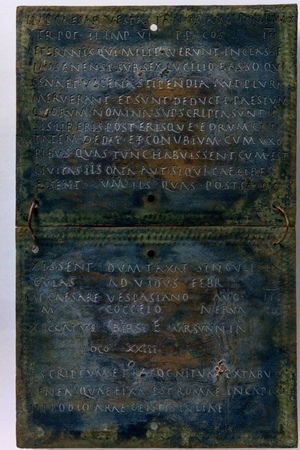Dismissal from the Fleet
In the ancient Roman military fleet, sailors served for 26 years. Upon completing their service, a sailor received a "diploma" - a patent of citizenship. The ceremony of receiving this diploma (Latin: diploma) was of great importance to the sailor. It was after this ceremony that he became a veteran and was discharged from service. However, even in peacetime, service in the fleet was very challenging: diseases and epidemics on ships, storms, and shipwrecks. Therefore, not everyone lived to the end of their service.
Moreover, sailors were often discharged ashore before their full service, and they did not receive their diploma: "A considerable number of sailors who served 25 years were probably given a mission causaria (discharge due to illness) at this stage, so that they could not obtain diplomas" (Bannikov, Morozov, "History of the Naval Fleets of Rome and Byzantium," p. 101). Sailors who received a diploma became full-fledged citizens of the empire. They obtained the right to enter into a lawful marriage and could pass on citizenship to their children born from that marriage.
Related topics
Trireme, History of the Republican Fleet of ancient Rome, Composition of the ancient Roman Navy



